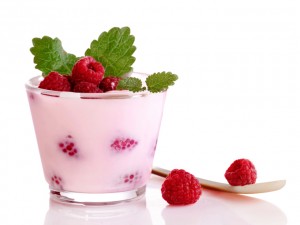In times of stress our bodies react: the heart will beat faster, palms will feel sweaty, and a difficult situation may manifest itself in other reactions of the body. In every day’s terms we speak about something “being a pain in the neck”, or the fear of an exam showing up as “butterflies in the stomach”.
Dr. Mary Perdue of the Intestinal Diseases Research Program at Mc Master University in Hamilton, Ontario went a step further. The fact that mental stress can bring physiologic changes in the lining of the intestine has been known for some time. As a result the epithelium (the lining) is more vulnerable to the attack of pathogenic bacteria. The researchers put a solution of lactobacillus to the test, to see whether these gut-friendly bacilli could offer some help. Stressed rats that received the treatment with lactobacillus showed a remarkable degree of protection. The stressed and treated animals were almost as resistant to intestinal pathogens as animals that had not been stressed at all. Contrary to that the non-stressed animals did not show much evidence of bacterial adhesion or penetration: they were more resistant to the attack of bacteria to their guts.
Dr. Perdue explains that it may be difficult to extrapolate from the rat model to the human model. Yet it is clear that humans who are stressed can develop intestinal dysfunction over time, or gastrointestinal symptoms can be exacerbated by stress.
In the meantime probiotics are recommended by many doctors and nutritionists to help restore the gut’s natural flora. New guidelines from Yale Medical School recommend them for diarrhea in children and adults and in diarrhea, which comes as a result of treatment with antibiotics.
More research is needed, but existing data suggest that probiotics can help manage lactose intolerance, prevent infections, and reduce inflammation. It can lower cholesterol and lower blood pressure and may help with prevention of colon cancer.
More information on:
1. Stress management: http://nethealthbook.com/health-nutrition-and-fitness/fitness/stress-management-relaxation-techniques/
2. Probiotics: https://www.askdrray.com/probiotics-important-for-your-health/
Reference: National Review of Medicine, May 15, 2006, page 8
Last edited Oct. 31, 2014






